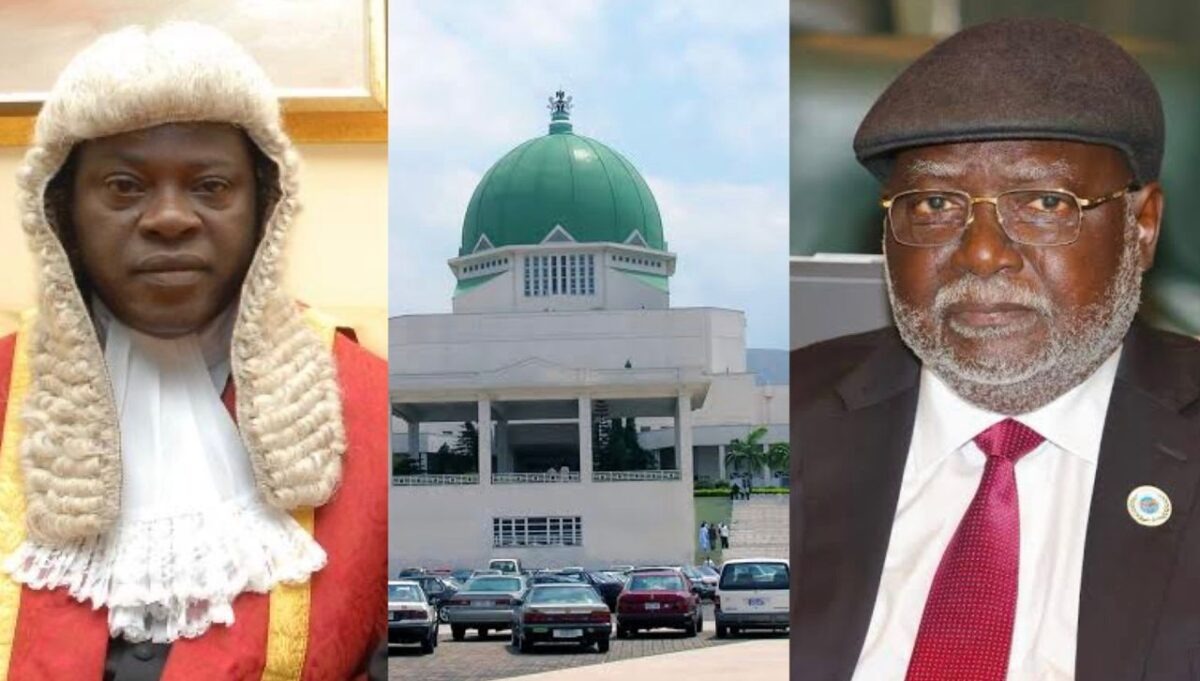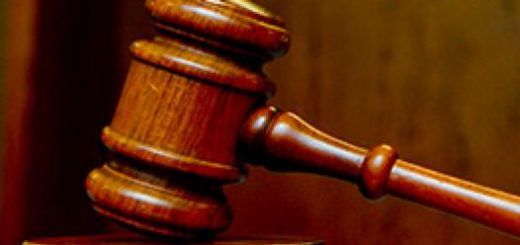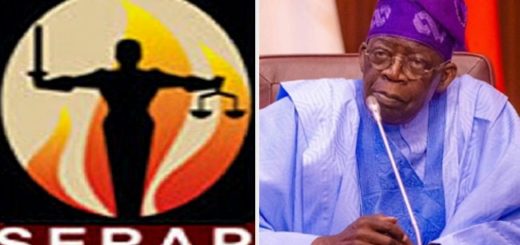Abuja CJ Baba-Yusuf ignores parliament’s resolution, schedules exam for Ariwoola’s daughter, others in illegal judicial recruitment
 Chief Justice Husseini Baba-Yusuf has scheduled a recruitment examination for new judges on the FCT High Court in defiance of a parliamentary resolution that said he should pause the exercise until outstanding questions over applicable statutes have been settled.
Chief Justice Husseini Baba-Yusuf has scheduled a recruitment examination for new judges on the FCT High Court in defiance of a parliamentary resolution that said he should pause the exercise until outstanding questions over applicable statutes have been settled.
Peoples Gazette learnt from judiciary sources that Mr Baba-Yusuf has asked Oluwakemi Ariwoola, daughter of the chief justice of Nigeria, and several others to attend a written test for promotion to the FCT High Court from their current positions as magistrates on Saturday.
The Government Secondary School, Maitama, was chosen as the venue, according to the notification letter sent out for the February 24 examination.
Mr Baba-Yusuf’s daughter, Maryam, was also selected to be on the court. He has also accepted Munira Ibrahim Tanko, a junior magistrate and daughter of erstwhile Chief Justice Ibrahim Tanko Muhammad, as a candidate from Bauchi.
The details emerged over a week after lawmakers protested after The Gazette’s story and queried Mr Baba-Yusuf’s decision to appoint 12 new judges to fill open positions on the 70-member high court that adjudicates issues across the Nigerian capital.
The motion moved by Enwo Igariwey was overwhelmingly adopted in a voice vote by Speaker Tajudeen Abbas, who subsequently referred it to the House Committee on FCT Judiciary.
Mr Igariwey’s state, Ebonyi, was among the four states, alongside Imo, Abia and Bayelsa, The Gazette reported were left out of judicial appointments in the FCT High Court led by Mr Baba-Yusuf. Legal expert Chidi Odinkalu observed in his latest column that the controversial appointments undermined protests over poor pay in the judiciary.
The Gazette found that recruiting the children of judiciary leaders also necessarily involved stunting the career progression of other magistrates from everyday households in at least four states, our findings showed. It was unclear why Messrs Ariwoola and Baba-Yusuf prioritised their daughters as judges from Oyo and Kogi, which, respectively, already had two judges on the FCT High Court, when Abia, Imo, Bayelsa and Ebonyi each has no single judge on the court and the Nigerian federal character policy codified in Chapter Two of the Constitution required staffing the 70-person bench equitably among citizens from the 36 states and the capital Abuja.
“The fact that the underlying philosophy of the Federal Character Commission principle is to provide equality of access in public service representations, curb dominance by one or few sections of the country, promote inclusiveness and national unity,” Mr Igariwey said. “Violation of this principle of our Constitution may not only be destabilising but could open the floodgates to litigation.”
The Gazette heard that Mr Baba-Yusuf did not update the list to include Ebonyi and other states that were left out as of Thursday night. It was not immediately clear how the parliament would respond to the chief judge’s defiance, but lawmakers argued they had the power to force the court to comply with existing laws governing the recruitment of judges across the nation’s capital.













